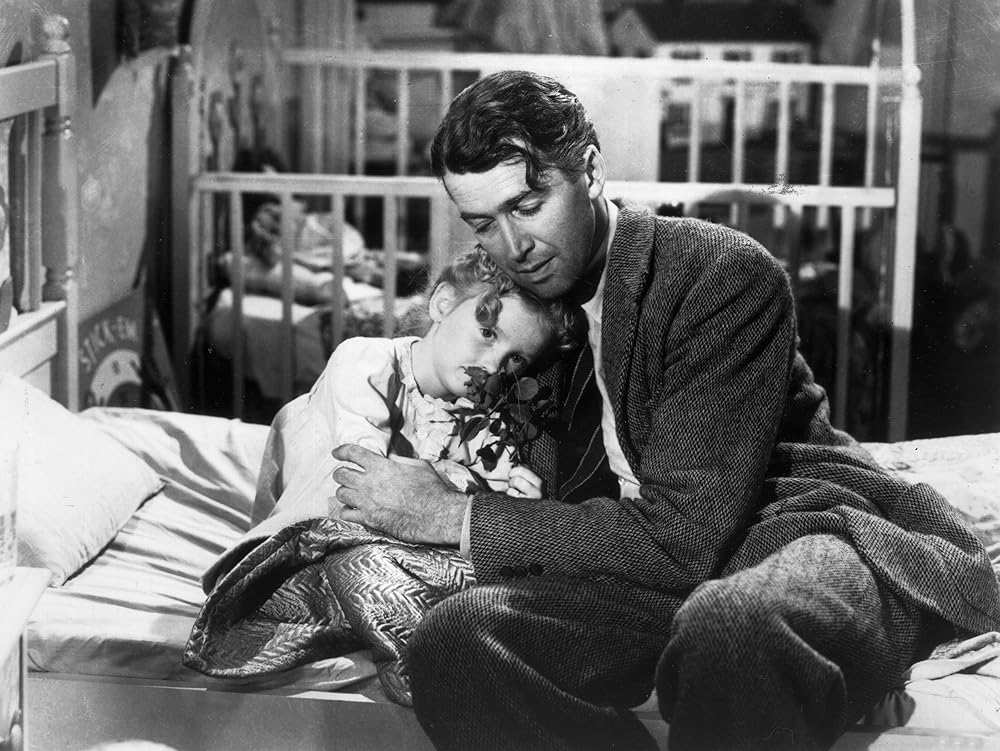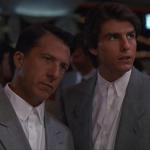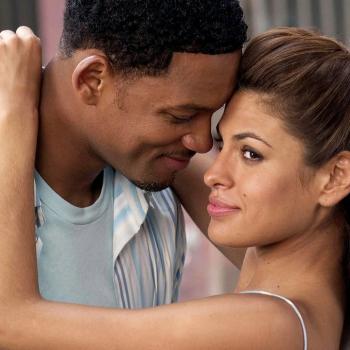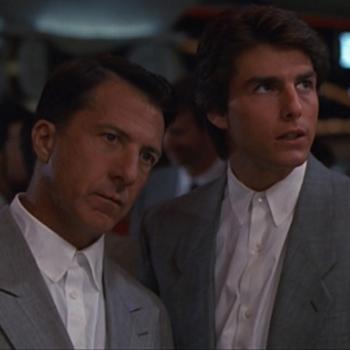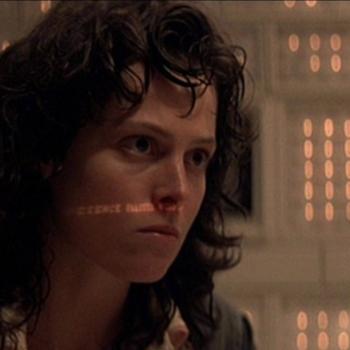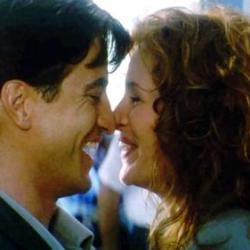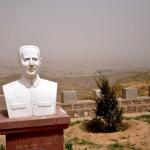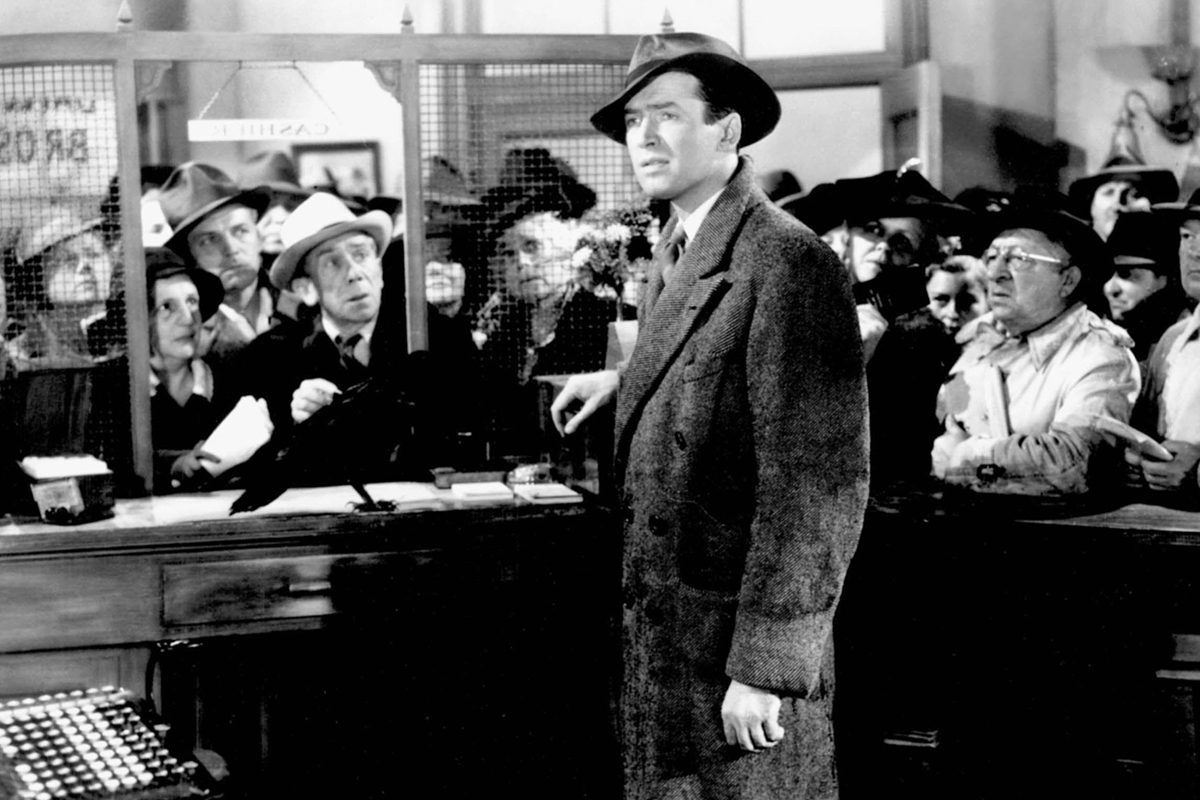
Here’s a question. By the end of It’s a Wonderful Life, do you think George Bailey ever realized that so many people were on their knees for him that Christmas Eve?
The film famously tracks the life of George Bailey, whose boundless dreams and ambitions are only eclipsed by his generous heart and strong moral compass. Over and over, his life calls on him to set aside his own interests and wants in order to rescue his community, and those within it, from despair and ruin. The film sees him one Christmas Eve facing a personal crisis, one that has him at a river’s edge wondering if maybe life just isn’t worth living anymore. Cue: divine intervention in the form of a hapless angel named Clarence who grants George an unusual gift: the opportunity to see how the world would have been if he had never been born. Seeing the ruin left behind in his absence, George reconsiders the worth of a life well-lived.
This is a really easy film to discuss through a spiritual lens. I don’t just mean that it is a film that displays actual religious rituals being observed and validated (like George’s prayer being answered by a literal angel). George himself demonstrates a lot of valiant, righteous behavior. In this way he emerges as a shadow of Christ himself.
You also see through George the various means by which one can be an instrument of good. Sometimes it means speaking up for an underseen community or against an agent of evil. Sometimes it means sticking around for someone who needs you. Sometimes it means doing a friend a favor and asking for nothing in return. George does all this and more, and he does it without expecting anything in return. We see early on that from the start, George gave of himself in more ways than one. He not only stuck his neck out for others, he also gave away pieces of himself, like when he dove into the water to save his brother and lost his hearing in one ear as a consequence.
Another thing I also appreciate about this movie is that it does display the emotional cost this kind of unconditional selflessness afflicts upon the person who is doing the giving, especially toward the film’s climax when George starts to crack. This is part of what keeps George accessible to the audience even as he functions as a Christ-insert (and I suppose, it also pricks the imagination–did Christ have quiet moments of despair that maybe weren’t recorded in the scriptures).
Part of what this also shows is that those people we think of as “good” are not unbreakable. They are not inexhaustible. And I think there’s a lesson there also. Sometimes we get to act in the function of George Bailey, and certainly we should aspire to. Other times we are the grateful recipients of their acts of generosity. And when we are, these people would probably do well to hear us express our gratitude for them long before they start aimlessly wandering the blizzarding streets on Christmas Eve.
In George’s case, he gets to realize that all of his sacrifices built to something, and something better than he could have found galivanting around Europe wearing fancy suits. The effectiveness of this arc also speaks to the quality of the film itself. We believe it when the film tells us when George couldn’t have been happier on his adventure than he was taking care of Bedford Falls because we have seen him and his extensive family throughout the film, and we know for ourselves just how entertaining they can be, a jump the audience can only make if the writing, directing, and acting are all on point–which they are. Even before George is literally rewarded with his friends and family pouring in to restore the lost funds for the bank (a sort of reversal of the bank run scene halfway through the film), we have felt the fruits of George’s natural love permeate every corner of Bedford Falls in the family he has grown through love unfeigned.
Anyways, I do hope George eventually got to go to Paris. (He’s like maybe 40 when the movie ends. It’s not like he’s missed the last boat.) But however long it does take him, I think he can rest assured that he’s been a rich man long before he bought his ticket.
